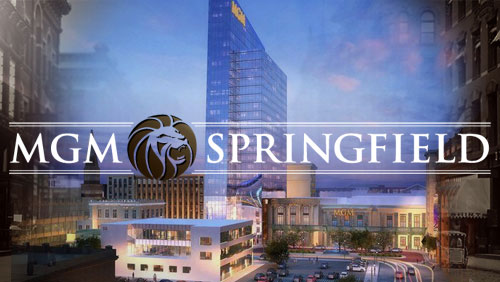 The Springfield, Massachusetts historical commission has granted MGM Springfield approval for its hotel’s new design and location.
The Springfield, Massachusetts historical commission has granted MGM Springfield approval for its hotel’s new design and location.
MGM Resorts announced that it plans to change the casino’s 25-story hotel tower to a six-story low rise with the same number of rooms, citing “skyrocketing” construction costs last month.
On a Thursday meeting, MGM and the commission resolved the ongoing historical preservation issues, agreeing that the changes will not harm the historic buildings or features.
The commission also approved the change of the location, relocating the six-story low rise from 73 State St. to Main Street at Howard Street.
“We believe the outcome reflects our combined commitment to historic preservation efforts,” said MGM Springfield spokeswoman Carole Brennan. “The MGM Springfield team continues to finalize design plans and looks forward to presenting to city officials in the coming weeks.”
The changes will still need approval from the Massachusetts Gaming Commission, Springfield’s mayor and the city council.
Researchers review economic and social impact of MGM Springfield on the state
Representatives from Social and Economic Impacts of Gambling in Massachusetts (SEIGMA)—a group of researchers at the University of Massachusetts Amherst—have conducted a review of the overall impact of MGM Springfield not only in the city but also for the whole state.
The group will present their findings at a forum on October 27, which was organized by the nonprofit Partners for a Healthier Community and is co-sponsored by the UMass School of Public Health and Health Sciences, the Springfield Department of Health and Human Services, and Baystate Health.
“This is an important opportunity to find out the status of gambling and problem gambling in Springfield now, before the casino is built,” said Kathleen Szegda, an epidemiologist and director of research and evaluation for Partners for a Healthier Community.
The group has formerly conducted a survey, the results from which showed that almost 60% of the state residents believed that the expansion of the local gambling industry would have “neutral, beneficial, or very beneficial” effects on Massachusetts.





